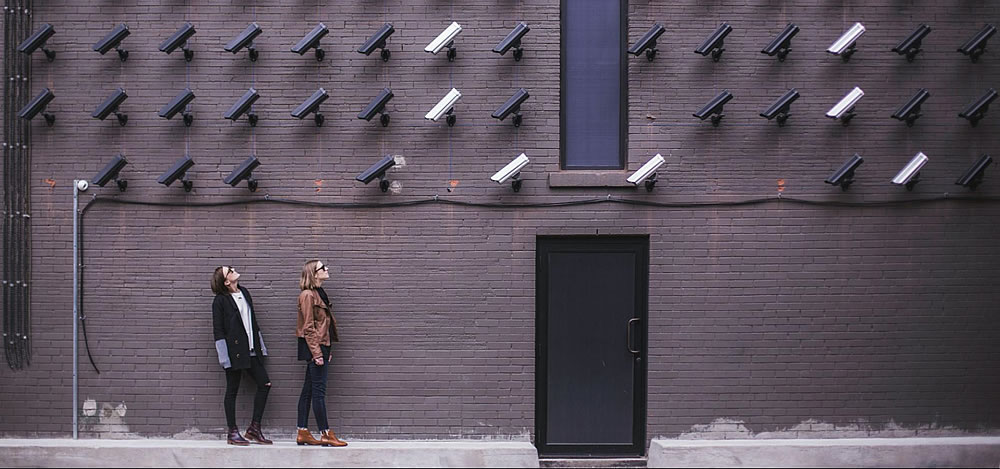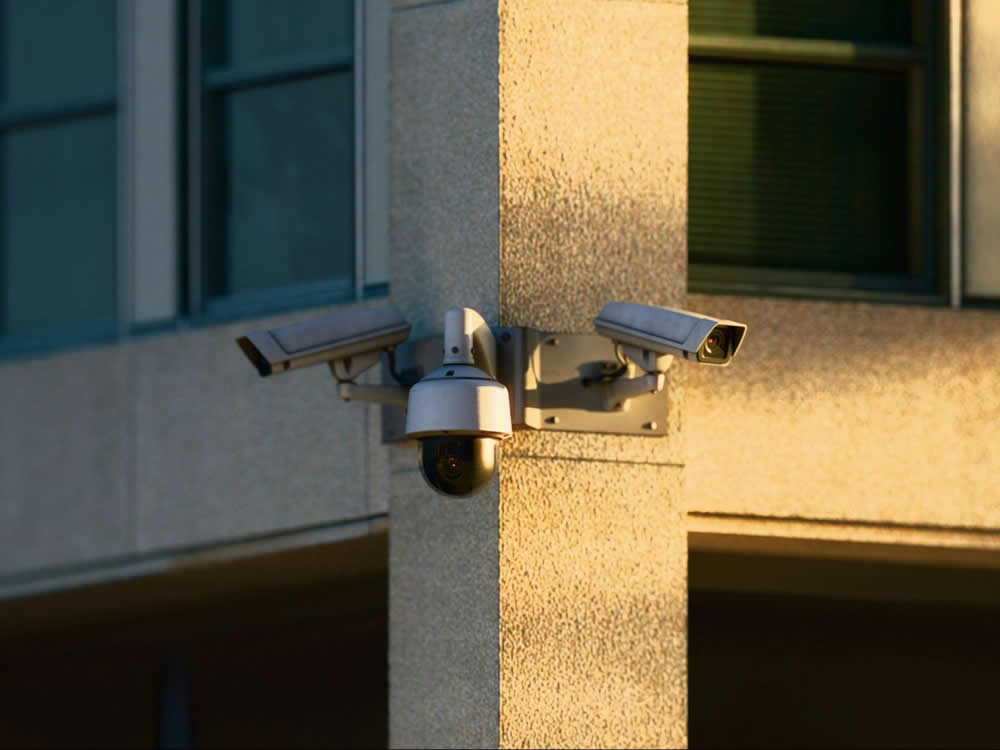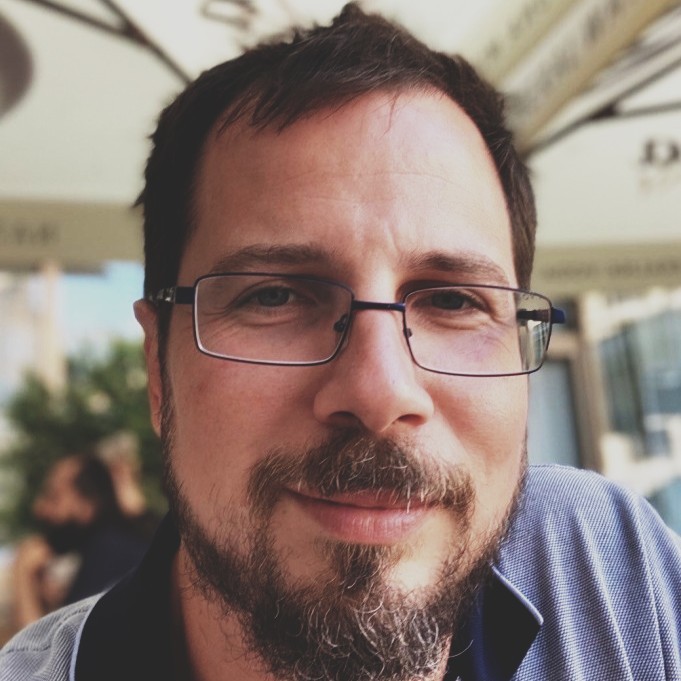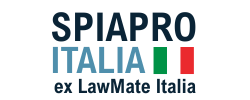
Spy Cameras in Europe: How to Stay Legal with Recording Devices

If you’re reading this, you’re probably here because you need to protect something. Your home, your business, or your privacy... and you want to do it the right way.
Maybe you’ve had break-ins at your garage, tense encounters on your commute, or unexplained activity at work after hours. Perhaps you just need to know that a private space is actually private. Covert tech, hidden cameras, voice recorders, and other devices can give you clarity, proof, and peace of mind.
But here’s where many people slip: in Europe, it’s not about what you own, it’s about how you use it. The law doesn’t just care about the gadget; it cares about the data. The moment a person can be identified in your recording, you’ve stepped into the world of privacy regulation. Under the EU’s General Data Protection Regulation (GDPR) and national laws, even well-intentioned surveillance must respect consent, proportionality, and purpose.
This guide breaks down where those lines actually lie, so you can protect what matters without crossing into the kind of surveillance that could cost you far more than what you’re trying to save.
The Bigger Picture: Surveillance Meets Culture
Culture plays a major role in Europe’s cautious approach to surveillance. A 2023 Eurobarometer survey found that nearly three-quarters of EU citizens worry about their personal data being misused, with video monitoring among the top concerns. That public anxiety helps explain why regulators like Germany’s BfDI and France’s CNIL are quick to fine businesses and landlords who overstep with cameras. In one 2020 case, the CNIL fined a French employer for continuous monitoring of staff, ruling that the practice was "excessive and disproportionate.”
Cultural attitudes also diverge across borders. In the UK, CCTV in public spaces is widely accepted as part of everyday life. In Germany, however, memories of the Stasi surveillance state fuel far stronger resistance to hidden recording, making regulators less tolerant of covert use. These differences don’t rewrite GDPR, but they do shape how strictly national authorities enforce it — and how the public reacts when cameras appear.
Government: Surveillance Under the Law

When governments use spy cameras, they operate under strict oversight, at least on paper.
Across the EU, the European Data Protection Supervisor (EDPS) insists that state bodies only use surveillance when it’s proportionate and necessary. That means cameras can’t just run endlessly "in case something happens.” Each installation must have a defined purpose, like preventing terrorism or monitoring a specific crime hotspot.
A major legal development is the 2024 EU Artificial Intelligence Act. It labels biometric surveillance, such as facial recognition, as "high-risk," so intelligence agencies and police forces can’t casually deploy these tools. They need special authorisation and must demonstrate robust safeguards.
Different countries add their own twists. Germany, for instance, requires judicial approval for most covert recordings. Courts there have repeatedly ruled that hidden cameras in public or workplaces must be a last resort. France sets a one-month limit on how long surveillance footage can be kept unless it’s tied to an investigation.
Governments may seem powerful, but they’re reined in by transparency and oversight. If a state agency abuses its powers, courts in Luxembourg or Strasbourg are ready to step in.
Private Investigators: Boundaries and Limits

Licensed private investigators walk a fine line. They’re hired to collect evidence, but they can’t violate privacy laws just to make a client happy.
European courts have made this clear. In the 2019 case Lopez Ribalda v. Spain, the European Court of Human Rights held that hidden workplace cameras could be used to detect theft, but only when the employer had serious grounds for suspicion and no other way to confirm it. Blanket surveillance was ruled a breach of workers’ rights.
The takeaway for private investigators is that covert devices must be used sparingly and only when proportional to the suspected offence. Recording audio is even more restricted than recording video. In countries like Germany, secretly recording a conversation without consent can be a criminal offence, regardless of who you are.
- Write down the problem you’re solving and why less intrusive options won’t work.
- Narrow the scope to a targeted location, a limited time, and a specific subject.
- Avoid blanket audio. If you must capture sound, be sure local law allows it and keep it strictly necessary.
- Plan retention and disclosure before you press record.
- Maintain chain of custody. Note serial numbers, SD card IDs, timestamps, and hash values where possible.
Many investigators rely on small, discreet devices.Cameras built into clocks, pens, or car key fobs. These tools are legal to own, but using them requires following national laws to the letter. A private investigator who oversteps their bounds could lose their license and have evidence thrown out of court.
Everyday Consumers: The Household Exception

For most people, spy cameras are about safety, not espionage. Parents want to check on babysitters. Homeowners worry about property damage and want to deter burglars.
The GDPR makes room for this. Under the "household exemption,” recordings made purely for personal or household use don’t trigger data protection rules. That means you can place a covert camera in your living room or a hidden clock camera in your garage.
But there are limits. If your device captures the street outside or a shared hallway in an apartment block, the exemption no longer applies. Suddenly, you’re processing other people’s personal data without consent, which can bring fines.
The Irish Data Protection Commission has also published specific Guidance on the use of Domestic CCTV (2021), advising homeowners to position cameras so they capture only their own property and not public spaces or neighbouring homes. They also warned that posting footage online — even to shame vandals — is a breach of data protection law.
Nanny Cams: A Grey Zone
Nanny cams are common, but the household exemption only stretches so far. If your setup captures a caregiver who hasn’t been told, the exemption can fall away—turning a private recording into unlawful monitoring in some countries.
Secretly filming a nanny without their consent can cross into unlawful territory in countries like Germany and France, where regulators view covert monitoring of employees as a breach of privacy. In the UK, nanny cams are legal, but parents are encouraged to inform caregivers in advance.
Across Europe, the guiding principle is transparency: if a nanny cam is used, it should be disclosed, proportionate, and confined to your household.
Short-Term Rentals: A Special Case

Few areas of surveillance law spark as much debate as short-term rentals. Hosts want to protect their property, while guests expect privacy. Under the GDPR and national data protection laws, the balance leans heavily toward guest rights.
The general rule is that any room where guests would have a reasonable expectation of privacy is off-limits to hidden cameras. That includes bedrooms and bathrooms. Even visible cameras indoors are highly restricted in many EU countries, as regulators consider them invasive unless guests have given explicit, informed consent.
What’s typically allowed is external monitoring. For example, a host can install a visible camera pointed at the entrance or driveway to document who enters and exits. The Spanish data authority (AEPD) and France’s CNIL have both clarified that cameras must be aimed only at the host’s property, never at shared hallways or public areas. Anything beyond that risks violating data protection law.
Platforms like Airbnb also enforce their own stricter rules: hidden cameras inside listings are forbidden, and any external cameras must be disclosed in the listing description. Undisclosed cameras can get a host banned, even if the device itself would be legal under local law.
For hosts who still want peace of mind without crossing lines, options include:
- Visible doorbell cameras or entryway devices (within property boundaries).
- Motion detectors or noise sensors that track activity but don’t record images or conversations.
- Tamper-proof locks and smart entry systems that track access but don’t record video.
In short, surveillance in rentals should be kept to a minimum, and renters should be informed of its presence. Hidden devices may protect property in the short term, but they create enormous legal risk and can destroy trust with guests and platforms alike.

Quick-Reference Cheat Sheet: Staying Legal with Recording and Counter-Surveillance Devices

Here’s your quick-reference map to what’s generally allowed, who can use it, and the conditions that keep you on the right side of European law. We’ve grouped common equipment by real-world scenarios—so you can match the tool to the job without tripping over consent rules or privacy limits.
Quick disclaimer: The following information provides an overview of the legal considerations when using surveillance devices; it should not be taken as legal advice. Always check the specific laws and consent rules in your local jurisdiction before using surveillance devices.
Spy cameras
1. Body-worn & on-the-go (evidence collection)
Good for: documenting harassment, stalking, or specific threats in public places where there’s no expectation of privacy.
Be careful: don’t film audio in jurisdictions where two-party (all-party) consent applies; don’t publish footage online.
Popular picks: LawMate PV-900 EVO3 Smartphone DVR (looks like a phone, streams and records), LawMate Key Fob Camera (discreet, quick to deploy).
2. Rooms & interiors (home/office)
Good for: your own living room, garage, or private office—especially when you’ve told staff or contractors there’s CCTV.
Be careful: bedrooms/bathrooms are off-limits; don’t point at shared hallways or neighbors’ property; signage and policies are expected at work.
Popular picks: LawMate PV-FM20HDWi Clock DVR (blends in on a shelf), PV-RC10FHD Remote Control DVR (looks like a TV remote), PV-CC10W Coffee Cup DVR (for short sessions).
3. Vehicles
Good for: deterring vandalism and documenting incidents on your property.Be careful: constant recording of public space is hard to justify; store footage briefly unless there’s an incident.
4. Short-term rentals (hosts)
Good for: visible exterior/entry cams with clear disclosure in the listing.
Be careful: no hidden indoor cameras; bedrooms and bathrooms are a hard no; follow platform rules (often stricter than the law).
Audio recorders
Audio is treated more strictly than video across much of Europe.
1. Body-worn voice recorders
Good for: capturing your own conversations when that’s lawful (in many places, one-party consent is enough; in others, everyone must consent).Be careful: "drop and walk away” recording of third parties is usually illegal. Publishing audio is almost always a separate violation.Popular picks: LawMate AR-100 (key-fob style, one-button start), LawMate AR-300 (slim, on-device playback for quick reviews), Edic-mini Tiny Plus B76 150 HQ (micro-recorder with long runtime/voice activation).
2. Room bugs & phone/line recording
Good for: your own line (with a notice), investigative work by licensed professionals under tight necessity/proportionality.Be careful: secretly recording private conversations in homes, offices, or staff areas can breach criminal wiretapping laws and data protection rules—even if "it’s for evidence.”
Popular picks: LawMate AR-200 (room recorder that can connect to your own landline for call capture), Edic-mini Tiny Plus A75 150 HQ (metal-body micro-recorder for targeted, time-limited room captures), Edic-mini Tiny Plus B70 150 HQ (extended capacity when you need longer sessions).
If you need audio masking rather than recording, consider speech protectors like the DRUID D-06 to block hidden mics from picking up intelligible speech during sensitive meetings.
Counter-surveillance (finding or blocking the spy gear)
If the theme is "trust but verify,” this is where you verify. These tools don’t process personal data the way recorders do, so the legal risk is low. The main rules are not to interfere with police investigations and not to use RF jammers (which are generally illegal in the EU). Ultrasonic audio jammers like Omni Tower or Mini Omni are ok.
1. RF & spectrum hunters (find wireless bugs)
Use when: you suspect Wi-Fi, 4G/5G, or burst-transmit bugs in rooms, vehicles, or meeting spaces.
Shop shortlist: WAM-X25 Wideband Detector (great all-rounder), iProtect 1216 (fast sweeps for common bands), and for pro teams, Delta X G2/12 (serious spectrum analysis for complex environments).
2. Non-linear junction detectors (NLJD)
Use when: you need to find electronics even when powered off or shielded (e.g., a dead bug in a wall or chair).
Shop picks: JJN Digital EDD-24T (handheld NLJD), JJN EDD-24XT (same tech with an extension pole for hard-to-reach areas), or Lornet/SWORD-24s models when you need more range/sensitivity.
3. Camera finders & lens detectors
Use when: you suspect pinhole lenses (airbnbs, hotel rooms, boardrooms).
Shop picks: OPTIC-2 Professional Hidden Camera Lens Detector (pro-grade optical finder that spots lenses even when the camera is off), WEGA-i Detector of Hidden Video Cameras (compact, quick sweeps), and for a hybrid that also checks RF activity, LawMate RD-30 (lens finder + 20 MHz–6 GHz RF scan). Pair any of these with a slow, methodical visual sweep.
4. Audio masking & conversation protection
Use when: you can’t fully clear a space but need to keep a meeting private.
Shop pick: DRUID D-06 (white-noise + transducer masking for tables/windows) to render covert mics useless.
5. Faraday pouches & device hygiene
Use when: you need phones to be silent (and radios truly off) or want to quarantine GPS/BLE beacons.
Tip: combine pouches with a "no personal devices” policy for sensitive sessions.
Responsible Use, Real Rewards
It’s easy to focus on the risks, but surveillance devices can be a force for good when used responsibly. Used well, these devices create accountability and a real sense of security.
The golden rules don’t change: point your tech at your space, keep what you collect to a minimum, store it securely, and don’t overshare. If you’re a business, be upfront. If you’re a PI, document every decision. And if you’re simply trying to protect your privacy, consider finding unwanted surveillance before you start recording anything yourself.
If you plan to use any surveillance equipment, stay up to date. Laws are evolving as fast as the tech. Covert devices keep getting smarter and cheaper, and AI can now recognize faces and even infer emotions, which raises both legal and ethical stakes.
Finally, the best surveillance is the kind nobody notices and nobody needs to fear. Be precise, be brief, and be fair.
FAQ: Staying Legal with Surveillance Devices in Europe
Can I legally use a hidden camera in my home?
Yes, in most European countries you can — as long as it's for personal use and stays within your property. The household exemption under GDPR usually covers this. The moment your camera captures shared hallways, sidewalks, or anyone else's property, you're a data controller and privacy laws apply.
Is it ever okay to record someone without telling them?
Sometimes, but rarely. If you're documenting harassment, stalking, or another serious threat in a public space, a discreet body‑worn camera can be justified. But secretly filming people at work, in their homes, or anywhere they expect privacy almost always crosses a legal line.
What about recording audio — is that different from video?
Very. Audio is treated more strictly across Europe because it captures private speech. Some countries allow one‑party consent; others require everyone involved to agree. Drop‑and‑walk‑away recorders that capture strangers' voices are nearly always illegal.
Can landlords or Airbnb hosts install cameras in their rentals?
Hidden cameras indoors are almost never allowed, and even visible ones need disclosure. Bedrooms and bathrooms are completely off‑limits. Exterior cameras are generally fine if visible, disclosed, and limited to your property. Platform rules may be stricter.
Are private investigators allowed to use covert devices?
Licensed investigators can, but only when necessary and proportionate, after considering less‑intrusive options, and with strict documentation. Audio surveillance is heavily restricted and may require judicial authorisation.
How long can I keep surveillance footage?
Only as long as you truly need it. Regulators expect unnecessary footage to be deleted within days or weeks unless tied to a specific incident or investigation.
Can I post footage online if someone damages my property?
Risky. Publishing identifiable footage turns a private recording into public data processing, which can violate GDPR. Report to police rather than posting.
What counts as a "reasonable expectation of privacy”?
Bedrooms, bathrooms, changing areas, and private offices. Public places differ, but overly broad or unnecessary capture can still be unlawful.
Are counter‑surveillance tools legal?
Generally yes; detectors and lens finders don't process personal data. RF jammers are illegal in the EU. Audio maskers and Faraday pouches are fine.
What happens if I break the rules without realising it?
Intent doesn't erase liability. First‑time offenders may receive warnings, but serious or repeated breaches can bring heavy fines — especially for businesses.
Do the same rules apply to governments?
Not exactly; different legal bases apply, but oversight still requires necessity and proportionality.
Is surveillance technology getting ahead of the law?
Yes. Devices are smaller with more AI capability; ethics should guide use until laws catch up.
So what's the safest way to stay compliant?
Keep scope tight, purpose clear, storage brief; inform people when possible, secure data, and delete what you don't need.




